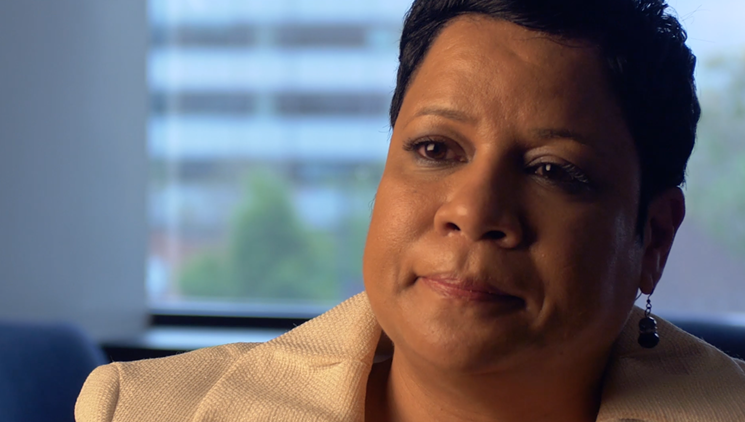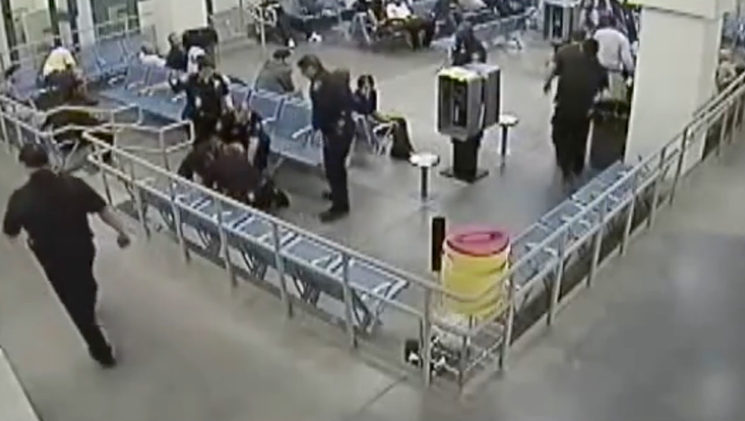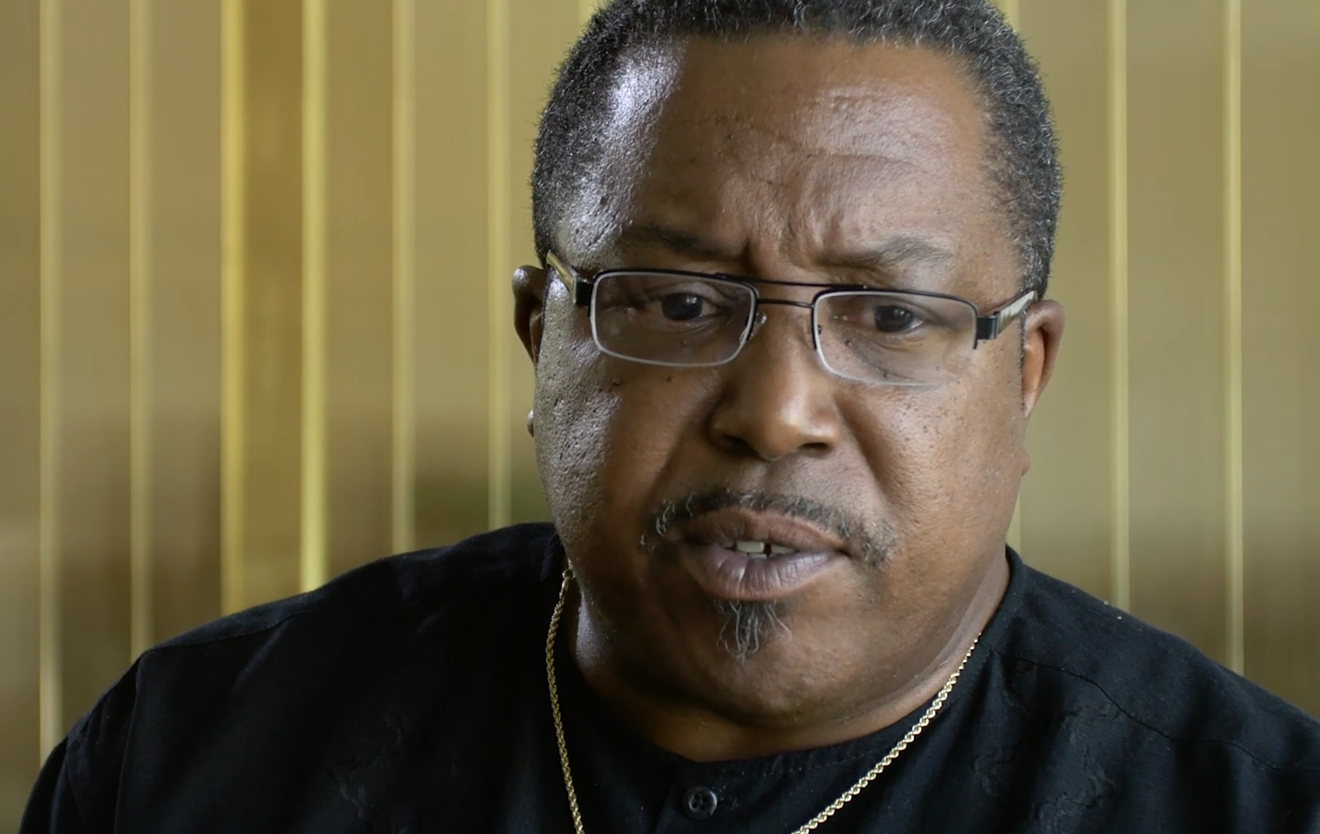The most unsettling moment is when Denver Executive Director of Safety Stephanie O'Malley's composure crumbles. Blink and you’ll miss it.
In the thirty minutes she allotted to Gardner for an interview, O’Malley — daughter of three-term mayor Wellington Webb — stuck to the general practice of Mayor Michael Hancock’s administration of refusing to apologize to families of people killed by Denver law enforcement. She took the interview with the caveat that she would talk in generalities, and specifically told Gardner that she would not address Booker’s death, the filmmaker says.
For most of the interview included in the film, O'Malley is as unemotional as a policy manual. She explains the city's "objective approach" to investigating excessive-force cases and describes how that process is based in "fact-finding." Her general attitude is that the system works, it's fair and it's reasonable.
The filmmaker says he tried to broach the subject of the city's response to the street preacher's death at the hands of its deputies twice and got little response. The third time — which is included in the film — Gardner asks her about Booker, and her face fails to maintain the neutral front that successful politicians perfect.

Stephanie O'Malley apologizes for not being willing to comment any more on Marvin Booker's case.
Marvin Booker Was Murdered
This was after the city coroner pronounced Booker's death a homicide, a civil court jury declared that sheriff’s deputies wrongly used excessive force against him, leading to his death, and the Denver city attorney agreed to a $6 million settlement.
"I'm not going to comment on the Booker matter again, sir," O'Malley says. "I'm sorry, but I'm just not."
That's when her expression shifts; she looks genuinely sorrowful.
Gardner says at first he and his cameraman thought she had feigned remorse as some sort of politically savvy maneuver.
“When we walked out, we were both like, ‘No, no, that was an act,’” Gardner says. “Then when I went back and looked at it, I go, 'No, maybe it was an act, but I'm going to give her the credit that it wasn’t.'”
Viewers will have to suss out for themselves what O’Malley was thinking in that moment, as Gardner did not ask her and she has not yet had the opportunity to see the film, which will have its premiere showing on January 13.
“My instincts tell me — when I went back and looked at it closer — I took it as a sign of remorse, that she was kind of forced to feeling that she couldn't say anything, even though she wanted to,” Gardner says.
By including O’Malley’s puzzling response to his question, Gardner shows a flicker of an official’s inner life, something the public rarely sees in an age when most political types opt to interact with the press through calculated statements rather than human interactions.

Denver jail surveillance footage of sheriff's deputies piling on top of Marvin Booker.
Marvin Booker Was Murdered
What we know is that she has been unwilling to apologize on behalf of the city. Just like Governor John Hickenlooper, who was mayor when Booker was killed. Just like Hancock, who entered office with promises of sweeping criminal-justice reform and who led the city's response to Marshall's death in 2015.
Gardner dug into public records to investigate Booker’s story. From the filmmaker’s years programming the DocuWest nonfiction film festival, he knows well that many documentarians find such a long-term investigation to be too expensive and time-consuming.
“I find more joy and more value in doing that, because that way it's a better gift to humanity and to the community,” the filmmaker says.
But Gardner isn’t just in the business of unearthing facts that public officials hide; in his film, he also unearths the humanity not just of Booker, his family and his attorneys, but also, in a small dose, of city officials.
That's where Marvin Booker Was Murdered shines.
The film premieres at 6 p.m. Friday, January 13, at the Cleo Parker Robinson Theater, 119 Park Avenue West. Tickets are $11.54 and can be purchased at the Marvin Booker Was Murdered Facebook page.












